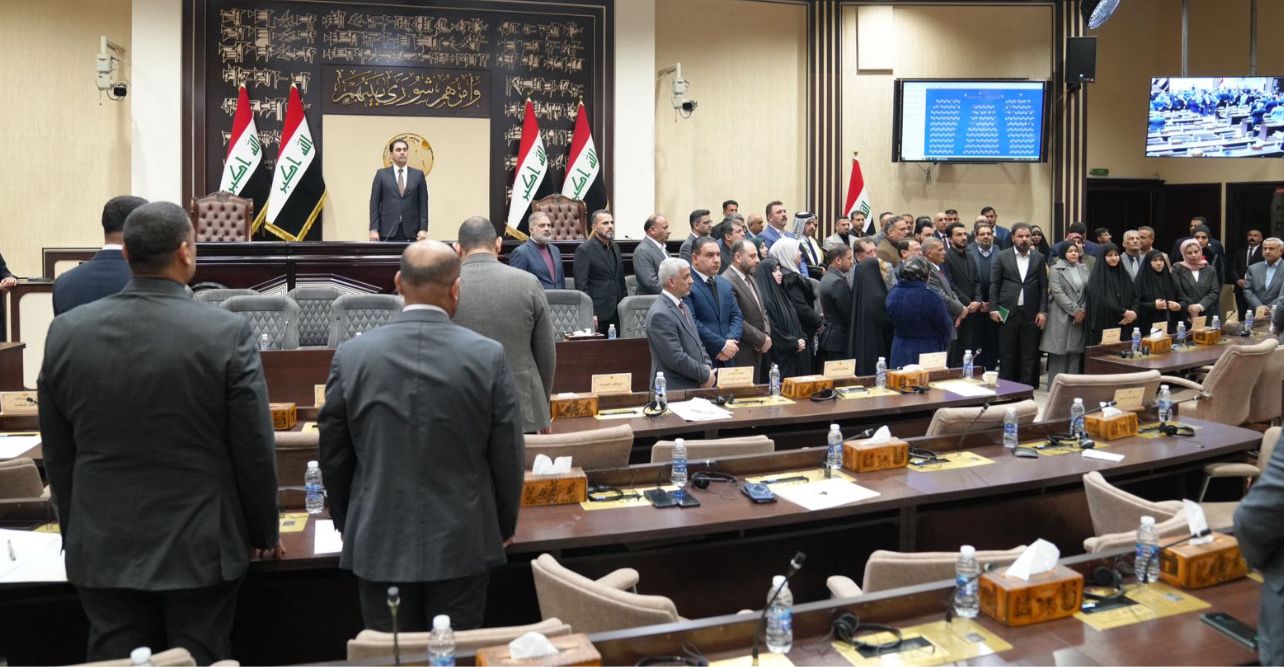MOSUL TIME RADIO
A number of members of the Iraqi Parliament collected 55 signatures to interrogate the Minister of Electricity, Ziad Ali Fadel, due to the presence of more than 51 financial and administrative corruption files at the headquarters of the Ministry of Electricity and its affiliated sectors, according to parliamentary statements .
The Iraqi electrical industry suffers from a major defect in its three basic aspects (generation, transmission, and distribution), and despite spending amounts exceeding 60 billion dollars on this sector under previous governments, it did not achieve the required level, which confirms that this sector was managed “badly and perhaps unprofessionally.” In addition to the widespread penetration of corruption,” according to specialists .
In order to identify “failures, corruption, and mismanagement in the Ministry of Electricity,” Representative Zuhair Al-Fatlawi announced , “Collecting 55 signatures from members of the House of Representatives to interrogate the Minister of Electricity, but some representatives were influenced by their political blocs and withdrew their signatures, but we are continuing to use legal methods for the purpose of interrogating the Minister.” electricity “.
Al-Fatlawi adds “The acting Speaker of the House of Representatives, Mohsen Al-Mandalawi , rejected the letter of signatures, and is currently being pressured in the media. In the event that the representatives’ request to question the Minister of Electricity is not responded to, a referral will be made to the Federal Court in this regard .”
He confirms, “There is pressure from the political blocs, as the Minister of Electricity is affiliated with the National Approach bloc, so there is a refusal from the political blocs for the interrogation, and there is also pressure on Al-Mandalawi not to pass any interrogation in the House of Representatives, but the movement continues to proceed with the interrogation, especially since the interrogation is Technical “.
Yesterday, Sunday, a member of the Parliamentary Electricity and Energy Committee, Nofat Hussein Al-Moussawi, revealed the presence of “more than (51) financial and administrative corruption files, waste and mismanagement files at the headquarters of the Ministry of Electricity and its affiliated sectors (transportation, production, distribution) .”
Al-Moussawi confirmed in a press statement, “The problem of electricity does not lie in production only, but in all sectors. There are lagging projects and a waste of public money in the contracts conducted by the Ministry, and the huge budgets allocated to the Ministry of Electricity are not reflected in serving citizens .”
She stated, “The Parliamentary Electricity and Energy Committee, during its hosting of the ministry’s staff, revealed the presence of false data, and if the interrogation does not proceed, the files will be presented to the media and the people will be the rulers. The files have been submitted to the integrity and prosecution and we await the procedures and investigation. Investigative committees have been formed against some files .”
For his part, a member of the Parliamentary Oil and Energy Committee, Bassem Al-Gharibawi, explains that “in yesterday’s parliamentary session, a member of the Parliamentary Legal Committee, Muhammad Jassim, intervened in it, and the latter told the acting Speaker of the House of Representatives, Mohsen Al-Mandalawi , that there is a delay in responding to the request of Representative Nofat Hussein Al-Moussawi for interrogation.” Al-Mandalawi responded that there was another request for an oral question, and Al-Mandalawi decided to proceed with the oral question and then proceed to interrogation .”
The electricity crisis in Iraq has taken many dimensions, and a large part of this crisis is inherited from previous governments. According to the latest data of the Ministry of Electricity, production reached more than 27 thousand megawatts, but the need reached 48 thousand megawatts, and this means that there is a big difference between the required capacity And the equipped capacity, and therefore there will be a large gap that will be difficult for the current ministry to achieve without there being serious work to establish huge electric stations powered by natural gas to fill this need as quickly as possible, according to the expert in the field of energy, Kovind . Sherwani .
Sherwani adds “ Most of the Ministry’s efforts are currently limited to treating minor symptoms and malfunctions in transformers and transmission and distribution networks, while the electrical industry suffers from a major defect in the three basic joints (generation, transmission and distribution), and needs rehabilitation and modernization in order to be able to meet the required loads and capacities. ” .
He points out that “the electricity sector was spent on sums exceeding 60 billion dollars, but it did not achieve the required and appropriate level for a country rich in energy resources of oil, gas and others, unlimited capabilities and large budgets allocated to it, which reflects that this sector was managed poorly and perhaps unprofessionally in previous years.” There were many outlets where corruption had penetrated, otherwise there is no justification for this huge waste of sums that were sufficient not only to establish large stations, but even to purchase some of the giants of electrical companies in the world .”
The expert stresses, “The Ministry of Electricity, in addition to its efforts to reform the network and increase the capacity of current stations, must resort to establishing clean (solar) energy stations that can be completed in quick times, at lower costs, and do not require significant maintenance, and this was included in the contract of the French company Total with the Ministry.” Oil is part of the establishment of a huge solar station with a capacity of 1,000 megawatts, which will be completed in less than a year. The Ministry of Electricity can establish at least 5 stations within its allocations in the tripartite budget for the years 2023, 2024, and 2025, and thus it can fill at least 50 percent of the current electrical energy deficit. “.






